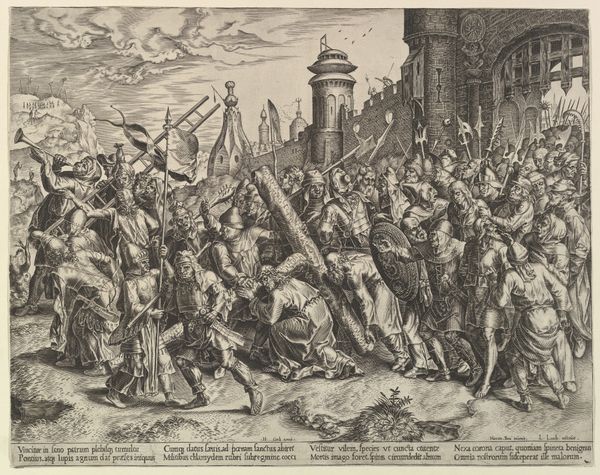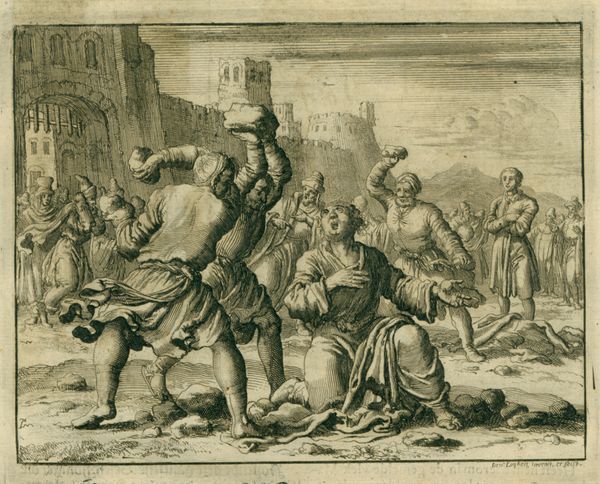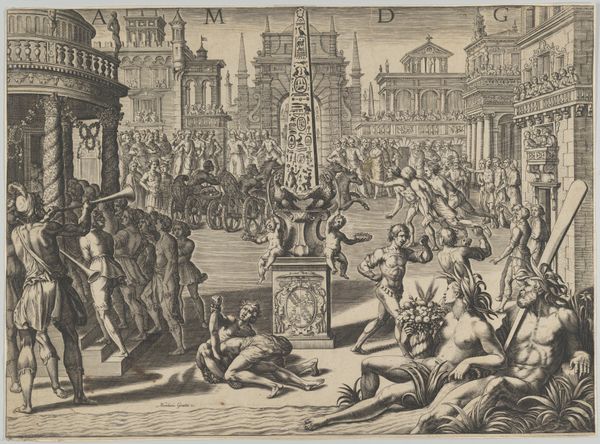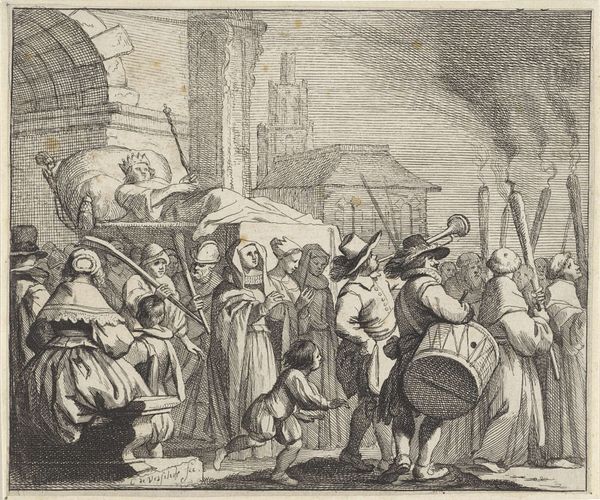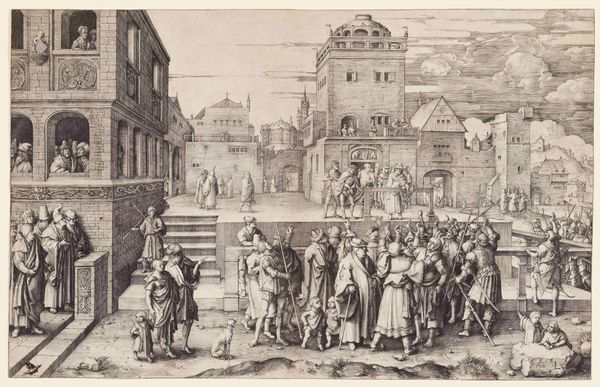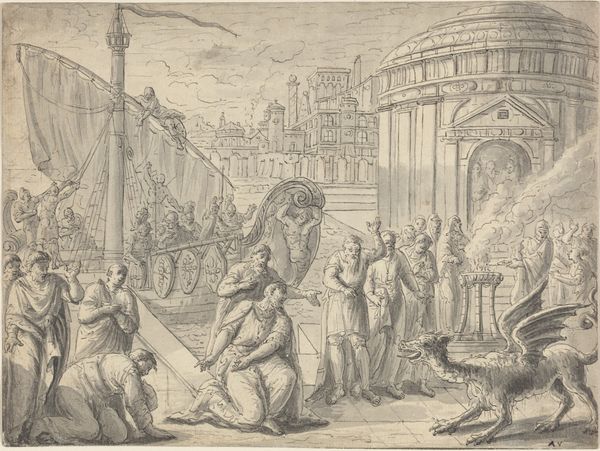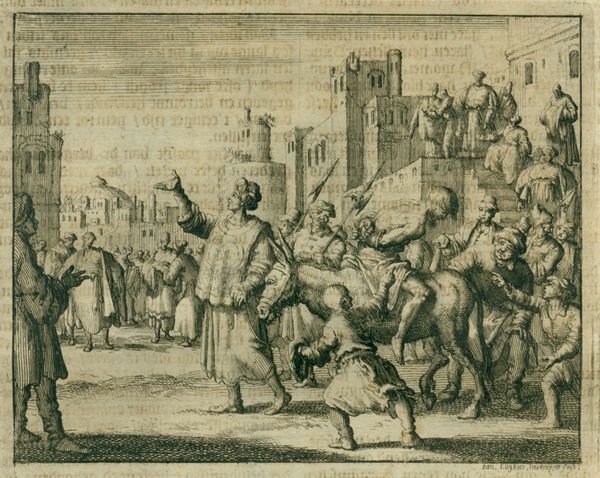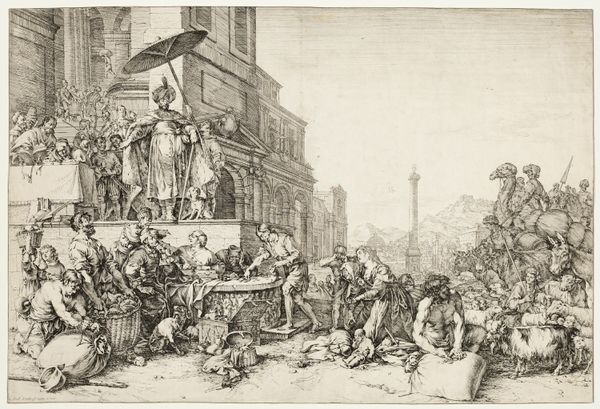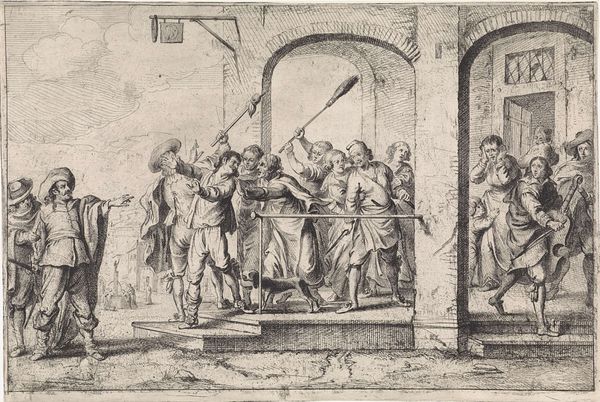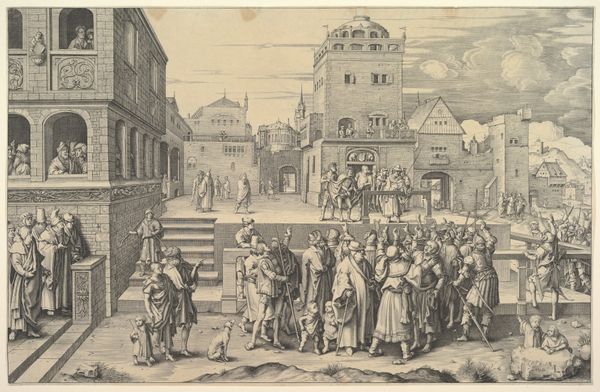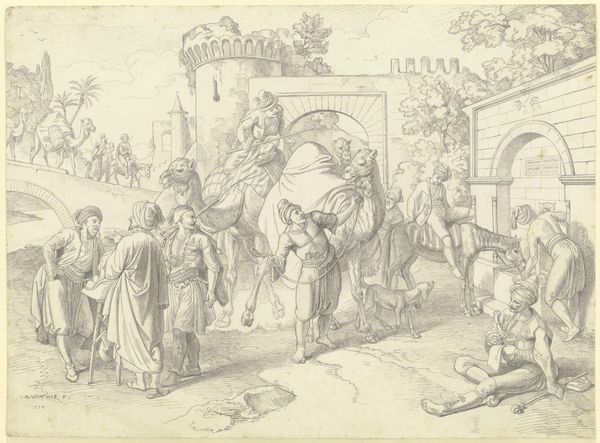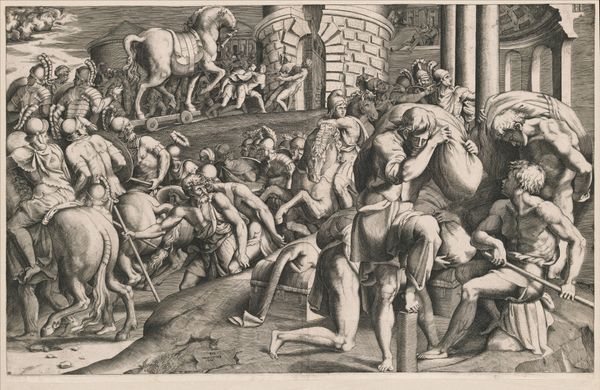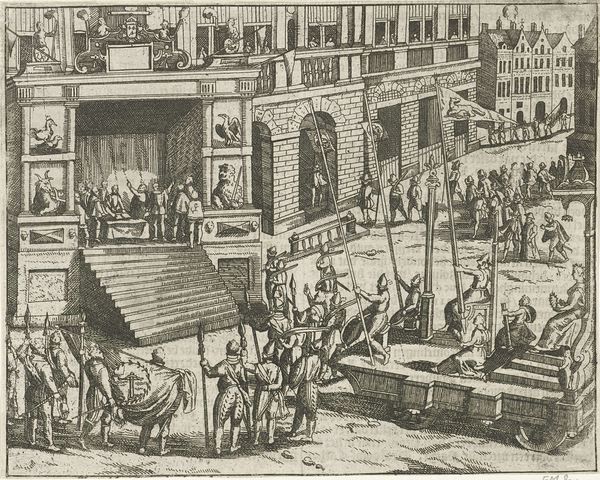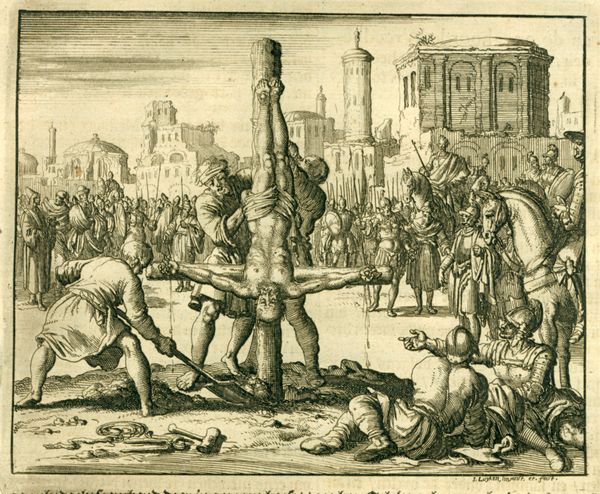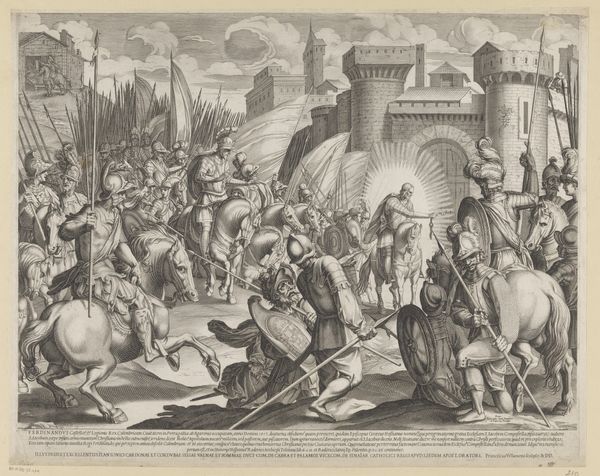
panel, oil-paint
#
panel
#
narrative-art
#
oil-paint
#
painted
#
figuration
#
oil painting
#
cityscape
#
genre-painting
#
history-painting
#
northern-renaissance
#
realism
Dimensions: support height 55 cm, support width 89.5 cm
Copyright: Rijks Museum: Open Domain
The "Ecce Homo" scene, whose artist is known as the Brunswick Monogrammist, is painted in oil on a wood panel nearly 90 centimeters wide. This wasn't just any wood, but carefully selected and prepared to provide a stable, smooth surface for the fine details. Oil paint is interesting stuff. Pigments are ground into oil, and then carefully layered, allowing the artist to build up luminous effects. It's labor intensive, requiring the gathering and processing of raw materials and a degree of skill, and great patience to apply. You can see this in the underlayers of color visible on the buildings, under the more saturated areas of the crowds. What is significant here, is that the artist took the fine art material of oil paint, and applied it to a scene of laboring people, and a chaotic mercantile port city, thus merging the high and low. So, next time you look at a painting, remember that it's not just about what is depicted, but also how the materials and methods used reflect social context.
Comments
rijksmuseum over 2 years ago
⋮
Ecce homo means ‘Behold the Man’: at the top of the stairs, the arrested Christ is shown to the people who demand his crucifixion. The painter set this important biblical story in an imaginary city of his own time. Daily life continues as usual: building work goes on, there is a market, and ships are being unloaded in the harbour.
Join the conversation
Join millions of artists and users on Artera today and experience the ultimate creative platform.
